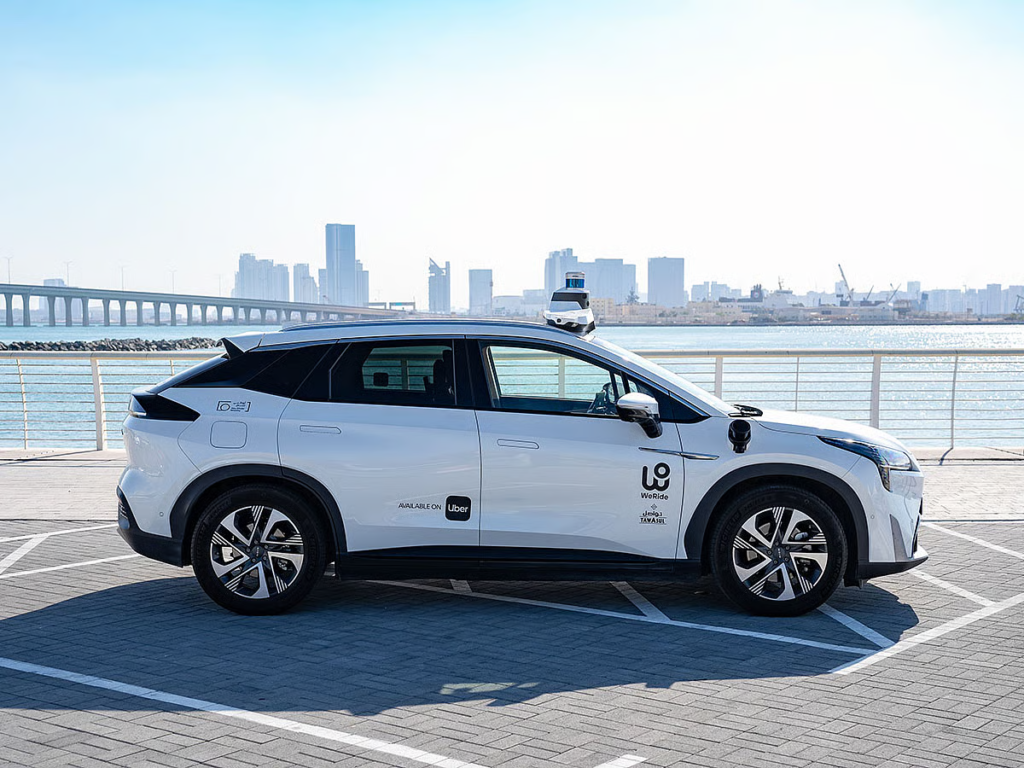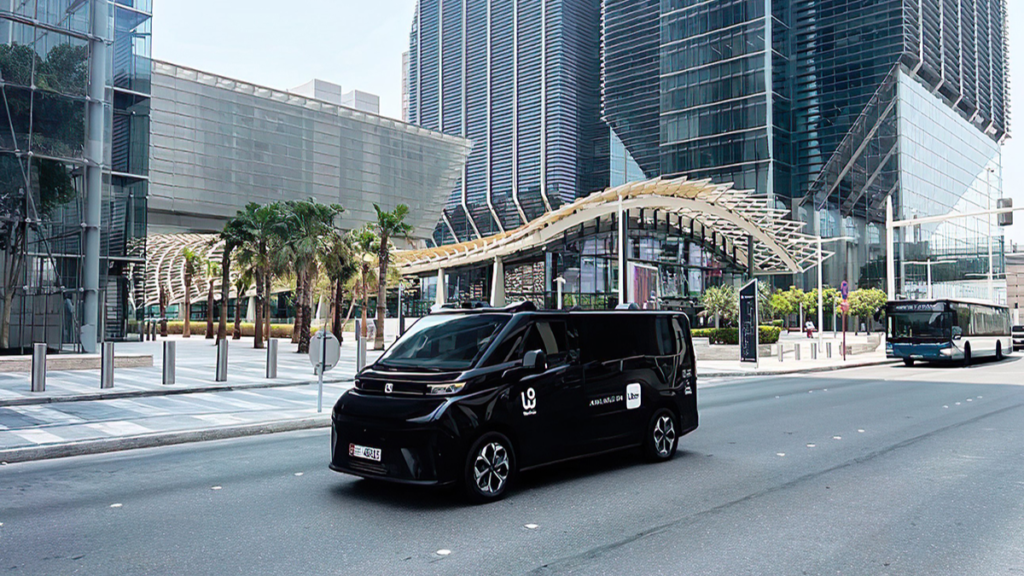Abu Dhabi has taken a bold step that instantly places the UAE in the global spotlight. The capital has officially launched commercial driverless vehicles, becoming the first city in the Middle East and North Africa to put fully autonomous Level 4 cars into public service. While the UAE has openly embraced future mobility for years, this moment marks the shift from trials to actual day-to-day operations—something that residents will feel on the ground.
The announcement came during DRIFTx 2025, held under the umbrella of the inaugural Abu Dhabi Autonomous Week. Locals are familiar with the capital’s steady upgrades to transport.
Level 4 Autonomy Rolls Out in the UAE Capital
What makes this rollout stand out is the level of autonomy involved. Abu Dhabi is not launching driver-assist cars or vehicles with backup drivers. These are Level 4 autonomous rides, capable of operating entirely on their own within defined zones.
The project is supervised by the Integrated Transport Centre (ITC), the Department of Municipalities and Transport, RegLab, and the Ministry of Interior. They’ve created a regulatory and operational framework that has been in the making for years.
Before the cars were officially cleared, they went through rigorous real-world evaluations, everything from how their sensors interpret Abu Dhabi’s road geometry to how they respond to sudden braking, merging traffic, and nighttime visibility. The testing was deliberately extensive, mirroring the way the UAE handles major mobility shifts. It’s the same careful, phased approach that Dubai followed when it announced its own self-driving zones earlier this year.

WeRide and AutoGo Receive the First Commercial Permits
Two operators received the first commercial approvals: WeRide, in collaboration with Uber and Tawasul, and AutoGo–K2, working with ApolloGo–Baidu. Both companies have quietly become familiar names within the autonomous space in the UAE, especially among residents who’ve spotted their cars on Yas Island or around the Corniche during test runs.
WeRide’s Taxi Fleet Has Already Covered the City
WeRide has been building toward this milestone for a while. As of October 2025, its autonomous taxis have completed more than 800,000 kilometres across Abu Dhabi. Each car handles up to 20 trips per 12-hour shift, covering nearly half of the city’s core urban area.
Locals who’ve taken test rides often compare the experience to hopping into a regular taxi—just without the small talk. The Uber–WeRide partnership gives the project a practical, everyday feel. Booking a robotaxi doesn’t require futuristic apps or new systems; it simply works through a platform that residents already use.
Earlier this year, WeRide became the first company in the region to conduct fully driverless Level 4 tests. Today, those tests have evolved into an actual commercial service.


AutoGo–K2 Completes the Fastest Journey to Full Autonomy
AutoGo–K2’s path has been equally impressive but much faster. The operator launched its initial deployment on Yas Island in July 2025. By September, it had secured full driverless approval.
During that short window, its fleet completed more than 100,000 kilometres of autonomous testing. The progression happened in three stages: supervised operations, passenger-seat monitoring, and finally full unmanned driving. The pace reflects both operator readiness and the UAE’s ability to fast-track future technologies while maintaining strict safety standards.
This push toward unmanned transport mirrors Abu Dhabi’s wider mobility roadmap, which includes upcoming eco-friendly fleets and long-term efforts to create a sustainable, AI-driven transport system.
How Abu Dhabi Plans to Keep Every Driverless Ride Safe
Introducing autonomous cars is one thing. Monitoring them in real time is another. Here’s where the UAE’s tech infrastructure shines.
The Integrated Transport Centre has developed a live tracking platform that monitors every autonomous trip in the city. The system flags incidents instantly, logs violations, and ensures operators follow strict protocols. This centralised oversight is the first of its kind in the region, designed to build public trust while giving authorities a clear view of everything happening on the roads.
The platform doesn’t just track movement—it collects real operational data that will shape the next phase of autonomous expansion. Think of it as the digital backbone of Abu Dhabi’s driverless ecosystem, similar to how Dubai uses unified command systems for traffic management. The UAE’s approach has always been about designing mobility systems that scale, not just impress.
The UAE’s Future
Beyond the headlines, this rollout creates real impact for the people who live and work in Abu Dhabi. Shorter wait times for rides, more consistent service during peak hours, and reduced operational costs all contribute to the long-term benefits. For a city growing as quickly as the UAE capital, autonomous transport adds capacity without adding congestion.
Economically, the region is tapping into a future-facing industry that is expected to create thousands of jobs in software, vehicle oversight, data monitoring, and maintenance. Socially, it positions the UAE as a global case study for the safe and seamless deployment of autonomous mobility.
Most importantly, it signals that the UAE’s smart mobility vision is no longer theoretical. It is happening in real neighbourhoods, with real passengers, on real roads.
Read More:
- UAE Approves 6,228 Emiratis for Hajj 2026 After Record 72,000 Applications – Social Kandura
- Expo City Dubai unveils Expo Valley Views – a new green-living apartment community surrounded by nature – Social Kandura
Follow Social Kandura for more updates on local news and things to do in Dubai and across the UAE.











